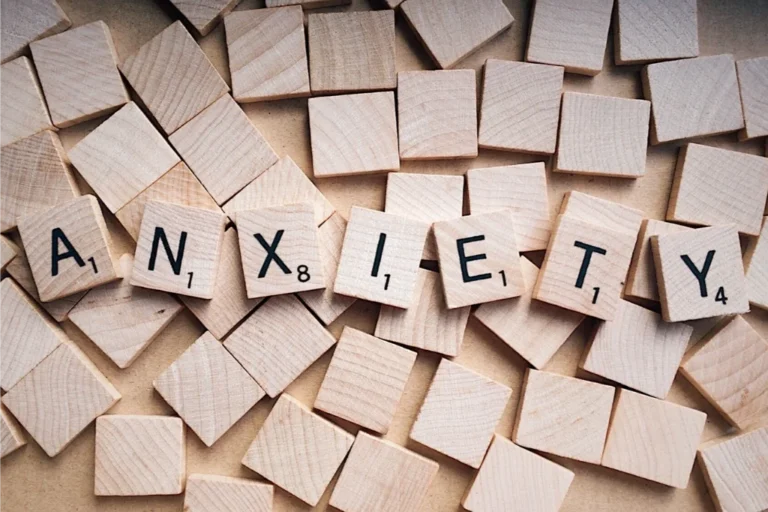What are anxious thoughts?
Anxious thoughts are patterns of thinking, which are critical, pessimistic, and rigid. They often arise automatically and thus you may not always be aware of them. Such thoughts can impact feelings, mood, and behaviour, the way we relate to ourselves and others. In general, the way we think affects our perception of the world.
People often portray their anxious thoughts as a “grey cloud” above their heads. It is a rainy cloud that makes them shrink and want to hide. It is demotivating, cold, and counterproductive. Others claim that worrying serves a protective function that helps to avoid mistakes, uncertainty, or troubles: “If I worry enough, maybe I will come up with a solution.” Anxious thoughts can be a form of a coping mechanism.
What are the effects of anxious thoughts?
It is utterly normal to have negative thoughts from time to time. For example, you may think negatively about a recent argument with a friend, worry about an upcoming doctor’s appointment, or stress over unpaid bills. However, when anxious thoughts become intense and irrational, they present you with a distorted version of reality that can lead to different mental health conditions, such as anxiety disorders or depression.
What causes anxious thoughts?
There are many different explanations for the occurrence of negative thoughts. From an evolutionary point of view, our brains are wired to quickly detect potential danger to survive. Similarly, when we are stressed, our brains tend to rely more on shortcuts trying to make more sense of complex information, so then you are more likely to jump to conclusions without analysing the context. Additionally, past experiences, especially traumatic ones, can also contribute to anxious thinking patterns and deeply held maladaptive beliefs about the self. For instance, if you grew up in an environment exposed to regular judgment and criticism, this can become an internalised way of how you talk to yourself later in life. Finally, culture and societal expectations also play a role when it comes to anxious thoughts. For example, living in a culture that values hard work above all else, you might blame yourself for taking some rest. The reasons humans have anxious thoughts are complex, shaped by various biopsychosocial factors.
What are cognitive errors?
Cognitive errors, also called “cognitive distortions” are biased or irrational thought patterns that may lead to negative thinking and emotional distress.
Below are some of the most common types and examples of thinking errors:
- All-or-Nothing Thinking (Black-and-White Thinking): “If I’m not perfect, I’m a total failure.”
- Catastrophizing: “If I make a mistake, everyone will judge me negatively.”
- Overgeneralization: “I failed this exam; I’ll always fail / never pass again.”
- Disqualifying the Positive: “They complimented me, but they were just being nice.”
- Mind Reading: “They must think that I’m boring.”
- Fortune Telling: “This will be a complete disaster.”
- Emotional Reasoning: “I feel anxious, so it must be dangerous.”
- Personalization: “It’s all my fault.”
- Should Statements: “I should always be perfect.”
- Labelling: “I’m stupid,” instead of “I am still learning.”
Unhelpful coping strategies:
It is not uncommon that constant worrying and self-deprecating thoughts make people more vulnerable to reaching for unhealthy coping strategies, such as:
- Turning to self-medication such as alcohol and drugs to numb out painful thoughts and feelings.
- Keeping busy and overworking, trying to do more and better to silence the negative voice of “never good enough.”
- Taking out frustrations on other people by blaming, controlling, and arguing.
- Overeating to temporarily reduce self-doubt and gloomy mood.
How to manage anxious thoughts?
- Become aware of them. Writing negative thoughts down can be a useful strategy to see when they are more likely to occur.
- Challenge them by asking yourself: “How true are they?” and “Is there any evidence against this belief?”
- Look for alternative interpretations: “What else could this mean?”
How to be mindful about anxious thoughts?
- Notice when an anxious thought shows up, acknowledge its presence and do not judge it.
- Observe your thoughts like a curious child and let them be. They are like clouds in the sky: they come and go.
- Try to take some action in line with your values, regardless of your thoughts: “What matters to me the most?”
Remember that thoughts and feelings are not facts and thus they are not objective realities.
Nobody grows from criticism. Often the way we talk to ourselves is the way we would never talk to people we care about, and we would not want others to talk to us this way either. It takes some time and practice to change the inner narrative and replace anxious thoughts with more positive ones, but you can already take the first step today.
If you need help or want to talk about anxious thoughts, please contact me via the contact form, directly by e-mail or by phone.

